11 Best Keto Supplements
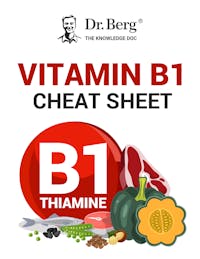
Vitamin B1 Cheat Sheet
Learn about the essential functions and benefits of vitamin B1
Understand the role of vitamin B1 in energy production and brain health
Recognize early signs and common causes of vitamin B1 deficiency
Discover the best dietary sources of vitamin B1
Get expert guidance on why avoiding synthetic vitamin B1 supplements is crucial

Vitamin B1 Cheat Sheet
Learn about the essential functions and benefits of vitamin B1
Understand the role of vitamin B1 in energy production and brain health
Recognize early signs and common causes of vitamin B1 deficiency
Discover the best dietary sources of vitamin B1
Get expert guidance on why avoiding synthetic vitamin B1 supplements is crucial

Vitamin B1 Cheat Sheet
Learn about the essential functions and benefits of vitamin B1
Understand the role of vitamin B1 in energy production and brain health
Recognize early signs and common causes of vitamin B1 deficiency
Discover the best dietary sources of vitamin B1
Get expert guidance on why avoiding synthetic vitamin B1 supplements is crucial

Vitamin B1 Cheat Sheet
Learn about the essential functions and benefits of vitamin B1
Understand the role of vitamin B1 in energy production and brain health
Recognize early signs and common causes of vitamin B1 deficiency
Discover the best dietary sources of vitamin B1
Get expert guidance on why avoiding synthetic vitamin B1 supplements is crucial

Vitamin B1 Cheat Sheet
Learn about the essential functions and benefits of vitamin B1
Understand the role of vitamin B1 in energy production and brain health
Recognize early signs and common causes of vitamin B1 deficiency
Discover the best dietary sources of vitamin B1
Get expert guidance on why avoiding synthetic vitamin B1 supplements is crucial

Vitamin B1 Cheat Sheet
Learn about the essential functions and benefits of vitamin B1
Understand the role of vitamin B1 in energy production and brain health
Recognize early signs and common causes of vitamin B1 deficiency
Discover the best dietary sources of vitamin B1
Get expert guidance on why avoiding synthetic vitamin B1 supplements is crucial

Vitamin B1 Cheat Sheet
Learn about the essential functions and benefits of vitamin B1
Understand the role of vitamin B1 in energy production and brain health
Recognize early signs and common causes of vitamin B1 deficiency
Discover the best dietary sources of vitamin B1
Get expert guidance on why avoiding synthetic vitamin B1 supplements is crucial

Vitamin B1 Cheat Sheet
Learn about the essential functions and benefits of vitamin B1
Understand the role of vitamin B1 in energy production and brain health
Recognize early signs and common causes of vitamin B1 deficiency
Discover the best dietary sources of vitamin B1
Get expert guidance on why avoiding synthetic vitamin B1 supplements is crucial

Vitamin B1 Cheat Sheet
Learn about the essential functions and benefits of vitamin B1
Understand the role of vitamin B1 in energy production and brain health
Recognize early signs and common causes of vitamin B1 deficiency
Discover the best dietary sources of vitamin B1
Get expert guidance on why avoiding synthetic vitamin B1 supplements is crucial

Vitamin B1 Cheat Sheet
Learn about the essential functions and benefits of vitamin B1
Understand the role of vitamin B1 in energy production and brain health
Recognize early signs and common causes of vitamin B1 deficiency
Discover the best dietary sources of vitamin B1
Get expert guidance on why avoiding synthetic vitamin B1 supplements is crucial

Vitamin B1 Cheat Sheet
Learn about the essential functions and benefits of vitamin B1
Understand the role of vitamin B1 in energy production and brain health
Recognize early signs and common causes of vitamin B1 deficiency
Discover the best dietary sources of vitamin B1
Get expert guidance on why avoiding synthetic vitamin B1 supplements is crucial

Vitamin B1 Cheat Sheet
Learn about the essential functions and benefits of vitamin B1
Understand the role of vitamin B1 in energy production and brain health
Recognize early signs and common causes of vitamin B1 deficiency
Discover the best dietary sources of vitamin B1
Get expert guidance on why avoiding synthetic vitamin B1 supplements is crucial

Vitamin B1 Cheat Sheet
Learn about the essential functions and benefits of vitamin B1
Understand the role of vitamin B1 in energy production and brain health
Recognize early signs and common causes of vitamin B1 deficiency
Discover the best dietary sources of vitamin B1
Get expert guidance on why avoiding synthetic vitamin B1 supplements is crucial

Vitamin B1 Cheat Sheet
Learn about the essential functions and benefits of vitamin B1
Understand the role of vitamin B1 in energy production and brain health
Recognize early signs and common causes of vitamin B1 deficiency
Discover the best dietary sources of vitamin B1
Get expert guidance on why avoiding synthetic vitamin B1 supplements is crucial

Vitamin B1 Cheat Sheet
Learn about the essential functions and benefits of vitamin B1
Understand the role of vitamin B1 in energy production and brain health
Recognize early signs and common causes of vitamin B1 deficiency
Discover the best dietary sources of vitamin B1
Get expert guidance on why avoiding synthetic vitamin B1 supplements is crucial

Vitamin B1 Cheat Sheet
Learn about the essential functions and benefits of vitamin B1
Understand the role of vitamin B1 in energy production and brain health
Recognize early signs and common causes of vitamin B1 deficiency
Discover the best dietary sources of vitamin B1
Get expert guidance on why avoiding synthetic vitamin B1 supplements is crucial

Vitamin B1 Cheat Sheet
Learn about the essential functions and benefits of vitamin B1
Understand the role of vitamin B1 in energy production and brain health
Recognize early signs and common causes of vitamin B1 deficiency
Discover the best dietary sources of vitamin B1
Get expert guidance on why avoiding synthetic vitamin B1 supplements is crucial

Vitamin B1 Cheat Sheet
Learn about the essential functions and benefits of vitamin B1
Understand the role of vitamin B1 in energy production and brain health
Recognize early signs and common causes of vitamin B1 deficiency
Discover the best dietary sources of vitamin B1
Get expert guidance on why avoiding synthetic vitamin B1 supplements is crucial

Vitamin B1 Cheat Sheet
Learn about the essential functions and benefits of vitamin B1
Understand the role of vitamin B1 in energy production and brain health
Recognize early signs and common causes of vitamin B1 deficiency
Discover the best dietary sources of vitamin B1
Get expert guidance on why avoiding synthetic vitamin B1 supplements is crucial

Vitamin B1 Cheat Sheet
Learn about the essential functions and benefits of vitamin B1
Understand the role of vitamin B1 in energy production and brain health
Recognize early signs and common causes of vitamin B1 deficiency
Discover the best dietary sources of vitamin B1
Get expert guidance on why avoiding synthetic vitamin B1 supplements is crucial

Vitamin B1 Cheat Sheet
Learn about the essential functions and benefits of vitamin B1
Understand the role of vitamin B1 in energy production and brain health
Recognize early signs and common causes of vitamin B1 deficiency
Discover the best dietary sources of vitamin B1
Get expert guidance on why avoiding synthetic vitamin B1 supplements is crucial

Vitamin B1 Cheat Sheet
Learn about the essential functions and benefits of vitamin B1
Understand the role of vitamin B1 in energy production and brain health
Recognize early signs and common causes of vitamin B1 deficiency
Discover the best dietary sources of vitamin B1
Get expert guidance on why avoiding synthetic vitamin B1 supplements is crucial

Vitamin B1 Cheat Sheet
Learn about the essential functions and benefits of vitamin B1
Understand the role of vitamin B1 in energy production and brain health
Recognize early signs and common causes of vitamin B1 deficiency
Discover the best dietary sources of vitamin B1
Get expert guidance on why avoiding synthetic vitamin B1 supplements is crucial

Vitamin B1 Cheat Sheet
Learn about the essential functions and benefits of vitamin B1
Understand the role of vitamin B1 in energy production and brain health
Recognize early signs and common causes of vitamin B1 deficiency
Discover the best dietary sources of vitamin B1
Get expert guidance on why avoiding synthetic vitamin B1 supplements is crucial

Vitamin B1 Cheat Sheet
Learn about the essential functions and benefits of vitamin B1
Understand the role of vitamin B1 in energy production and brain health
Recognize early signs and common causes of vitamin B1 deficiency
Discover the best dietary sources of vitamin B1
Get expert guidance on why avoiding synthetic vitamin B1 supplements is crucial

Vitamin B1 Cheat Sheet
Learn about the essential functions and benefits of vitamin B1
Understand the role of vitamin B1 in energy production and brain health
Recognize early signs and common causes of vitamin B1 deficiency
Discover the best dietary sources of vitamin B1
Get expert guidance on why avoiding synthetic vitamin B1 supplements is crucial
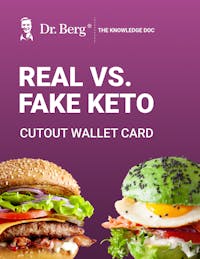
Keto vs. Non-Keto
Quickly compare keto-friendly foods with non-keto options for easy reference
Use this wallet card to make informed food choices while shopping or dining out
Identify fake keto foods and ingredients that you should avoid
Simplify decision-making with clear, practical guidelines

Keto vs. Non-Keto
Quickly compare keto-friendly foods with non-keto options for easy reference
Use this wallet card to make informed food choices while shopping or dining out
Identify fake keto foods and ingredients that you should avoid
Simplify decision-making with clear, practical guidelines

Keto vs. Non-Keto
Quickly compare keto-friendly foods with non-keto options for easy reference
Use this wallet card to make informed food choices while shopping or dining out
Identify fake keto foods and ingredients that you should avoid
Simplify decision-making with clear, practical guidelines

Keto vs. Non-Keto
Quickly compare keto-friendly foods with non-keto options for easy reference
Use this wallet card to make informed food choices while shopping or dining out
Identify fake keto foods and ingredients that you should avoid
Simplify decision-making with clear, practical guidelines

Keto vs. Non-Keto
Quickly compare keto-friendly foods with non-keto options for easy reference
Use this wallet card to make informed food choices while shopping or dining out
Identify fake keto foods and ingredients that you should avoid
Simplify decision-making with clear, practical guidelines

Keto vs. Non-Keto
Quickly compare keto-friendly foods with non-keto options for easy reference
Use this wallet card to make informed food choices while shopping or dining out
Identify fake keto foods and ingredients that you should avoid
Simplify decision-making with clear, practical guidelines

Keto vs. Non-Keto
Quickly compare keto-friendly foods with non-keto options for easy reference
Use this wallet card to make informed food choices while shopping or dining out
Identify fake keto foods and ingredients that you should avoid
Simplify decision-making with clear, practical guidelines

Keto vs. Non-Keto
Quickly compare keto-friendly foods with non-keto options for easy reference
Use this wallet card to make informed food choices while shopping or dining out
Identify fake keto foods and ingredients that you should avoid
Simplify decision-making with clear, practical guidelines

Keto vs. Non-Keto
Quickly compare keto-friendly foods with non-keto options for easy reference
Use this wallet card to make informed food choices while shopping or dining out
Identify fake keto foods and ingredients that you should avoid
Simplify decision-making with clear, practical guidelines

Keto vs. Non-Keto
Quickly compare keto-friendly foods with non-keto options for easy reference
Use this wallet card to make informed food choices while shopping or dining out
Identify fake keto foods and ingredients that you should avoid
Simplify decision-making with clear, practical guidelines

Keto vs. Non-Keto
Quickly compare keto-friendly foods with non-keto options for easy reference
Use this wallet card to make informed food choices while shopping or dining out
Identify fake keto foods and ingredients that you should avoid
Simplify decision-making with clear, practical guidelines

Keto vs. Non-Keto
Quickly compare keto-friendly foods with non-keto options for easy reference
Use this wallet card to make informed food choices while shopping or dining out
Identify fake keto foods and ingredients that you should avoid
Simplify decision-making with clear, practical guidelines

Keto vs. Non-Keto
Quickly compare keto-friendly foods with non-keto options for easy reference
Use this wallet card to make informed food choices while shopping or dining out
Identify fake keto foods and ingredients that you should avoid
Simplify decision-making with clear, practical guidelines

Keto vs. Non-Keto
Quickly compare keto-friendly foods with non-keto options for easy reference
Use this wallet card to make informed food choices while shopping or dining out
Identify fake keto foods and ingredients that you should avoid
Simplify decision-making with clear, practical guidelines

Keto vs. Non-Keto
Quickly compare keto-friendly foods with non-keto options for easy reference
Use this wallet card to make informed food choices while shopping or dining out
Identify fake keto foods and ingredients that you should avoid
Simplify decision-making with clear, practical guidelines

Keto vs. Non-Keto
Quickly compare keto-friendly foods with non-keto options for easy reference
Use this wallet card to make informed food choices while shopping or dining out
Identify fake keto foods and ingredients that you should avoid
Simplify decision-making with clear, practical guidelines

Keto vs. Non-Keto
Quickly compare keto-friendly foods with non-keto options for easy reference
Use this wallet card to make informed food choices while shopping or dining out
Identify fake keto foods and ingredients that you should avoid
Simplify decision-making with clear, practical guidelines

Keto vs. Non-Keto
Quickly compare keto-friendly foods with non-keto options for easy reference
Use this wallet card to make informed food choices while shopping or dining out
Identify fake keto foods and ingredients that you should avoid
Simplify decision-making with clear, practical guidelines

Keto vs. Non-Keto
Quickly compare keto-friendly foods with non-keto options for easy reference
Use this wallet card to make informed food choices while shopping or dining out
Identify fake keto foods and ingredients that you should avoid
Simplify decision-making with clear, practical guidelines

Keto vs. Non-Keto
Quickly compare keto-friendly foods with non-keto options for easy reference
Use this wallet card to make informed food choices while shopping or dining out
Identify fake keto foods and ingredients that you should avoid
Simplify decision-making with clear, practical guidelines

Keto vs. Non-Keto
Quickly compare keto-friendly foods with non-keto options for easy reference
Use this wallet card to make informed food choices while shopping or dining out
Identify fake keto foods and ingredients that you should avoid
Simplify decision-making with clear, practical guidelines

Keto vs. Non-Keto
Quickly compare keto-friendly foods with non-keto options for easy reference
Use this wallet card to make informed food choices while shopping or dining out
Identify fake keto foods and ingredients that you should avoid
Simplify decision-making with clear, practical guidelines

Keto vs. Non-Keto
Quickly compare keto-friendly foods with non-keto options for easy reference
Use this wallet card to make informed food choices while shopping or dining out
Identify fake keto foods and ingredients that you should avoid
Simplify decision-making with clear, practical guidelines

Keto vs. Non-Keto
Quickly compare keto-friendly foods with non-keto options for easy reference
Use this wallet card to make informed food choices while shopping or dining out
Identify fake keto foods and ingredients that you should avoid
Simplify decision-making with clear, practical guidelines

Keto vs. Non-Keto
Quickly compare keto-friendly foods with non-keto options for easy reference
Use this wallet card to make informed food choices while shopping or dining out
Identify fake keto foods and ingredients that you should avoid
Simplify decision-making with clear, practical guidelines

Keto vs. Non-Keto
Quickly compare keto-friendly foods with non-keto options for easy reference
Use this wallet card to make informed food choices while shopping or dining out
Identify fake keto foods and ingredients that you should avoid
Simplify decision-making with clear, practical guidelines
The ketogenic diet has helped many individuals improve their health, and maintaining optimal nutrient stores on a low-carb diet is crucial for keto success.
Discover eleven of the best keto supplements and learn why keto diet pills won’t boost ketosis or help you lose weight.
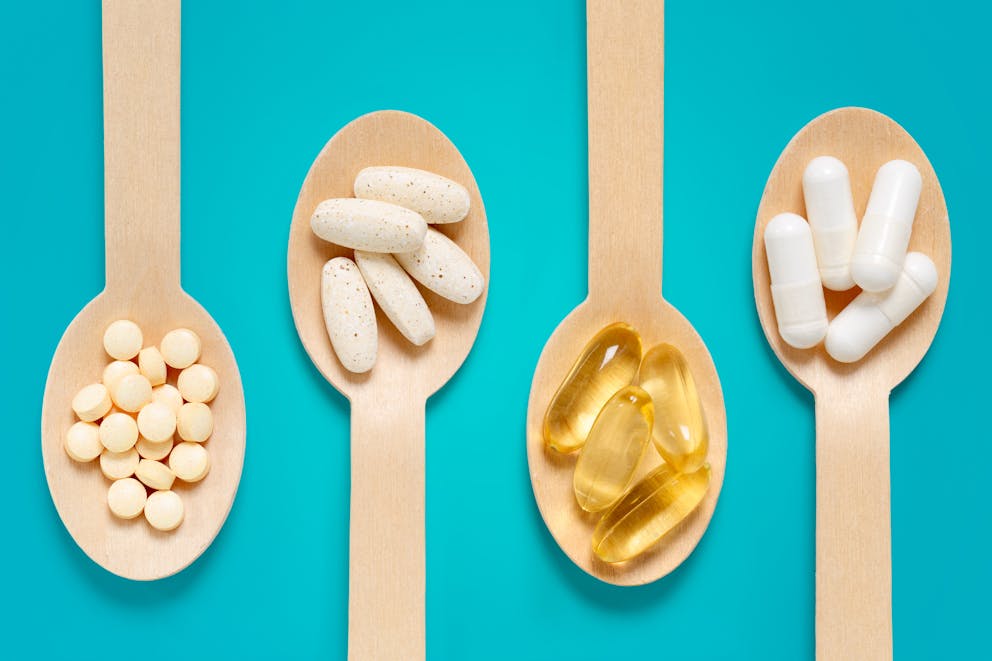
Should you take supplements while on keto?
Vitamins, minerals, and fatty acids play a critical role in energy production, immune system function, and hormone synthesis, and maintaining optimal nutrient stores is essential for overall health and well-being.
That’s why it’s crucial to follow Healthy Keto®, a nutritious low-carb meal plan that focuses on nutrient-dense organic vegetables, healthy fats, grass-fed beef, wild-caught fish and game meat, organic full-fat dairy, and pasture-raised eggs.
Unfortunately, even a nutritious high-fat diet may lead to nutrient deficiencies in individuals with digestive issues, which can cause intestinal inflammation and malabsorption.
In addition, several other factors can increase the risk of nutritional deficiencies:
Chronic stress
Certain prescription medications
Aging
Smoking
Regular alcohol intake
Vegan or vegetarian diets
Lack of adequate sleep
Taking supplements on keto offers a convenient way to meet daily nutrient requirements, which helps prevent deficiencies and supports various crucial bodily functions.
It’s important to note that certain dietary supplements can interact with prescription medications or cause adverse effects in individuals with preexisting health conditions.
To minimize the risk of side effects, it’s crucial to consult a healthcare provider before incorporating a keto supplement regimen into your routine.
Watch the video below to discover seven of the best keto diet supplements.
Do keto pills work?
Many keto pills claim to be ketosis-enhancing supplements that raise blood ketone levels and help you burn fat faster.
However, these claims must be taken cautiously, as there are significant differences between natural ketones produced in response to a low-carb diet and synthetically manufactured ketone supplements, also referred to as exogenous ketones.
Exogenous ketone supplements are becoming increasingly popular and available as ketone salts, ketone esters, keto drinks, and even keto gummies.
While exogenous ketone bodies can temporarily raise blood ketone concentrations, they won’t put you in a state of ketosis, which can only be achieved by obtaining the majority of calories from fat while restricting carbohydrates.
“Ketones generated within the human body are derived from the breakdown of dietary or stored body fat, which promotes a healthy body weight,” explains Dr. Berg. “In contrast, exogenous ketones simply elevate blood ketone levels for a short period and don’t enhance fat-burning.”
Watch the video below to learn why keto diet pills aren’t necessary for those on ketogenic diets.
11 best keto supplements
The profound health benefits of ketosis are hard to ignore, and supporting the body’s capacity to burn fat with the right nutrients can boost energy levels, improve mental clarity, and help keep keto-flu symptoms at bay.
Here are 11 of the best keto supplements you should consider adding to your routine.
1. Mineral complex
Mineral complex supplements typically provide essential electrolytes, including calcium, magnesium, potassium, and chloride, as well as trace minerals, such as zinc, iron, copper, chromium, iodine, and manganese.
Contrary to common belief, trace minerals are not just for hair and skin but also play a critical role in various metabolic processes supporting fat burning and ketosis.
Research published in Nutrients highlights the importance of magnesium, selenium, chromium, and manganese for optimal blood sugar and insulin balance, a crucial aspect of triggering and maintaining ketosis.
In addition, minerals have an alkalizing effect on the body and can counteract uric acid, a weak organic acid associated with an increased risk of gout and kidney stones.
2. Vitamin B1
Vitamin B1, also known as thiamine, is an often underappreciated nutrient critical for energy production as it facilitates the production of adenosine triphosphate (ATP), the body’s main energy currency.
Thiamine helps maintain a healthy nervous system and has stress-relieving properties linked to better mood regulation, improved cognitive functions, and overall neurological health.
A study published in the Annals of the New York Academy of Science suggests that thiamine deficiency is more prevalent than previously thought and associated with an increased risk of neurodegenerative diseases and cardiovascular issues.
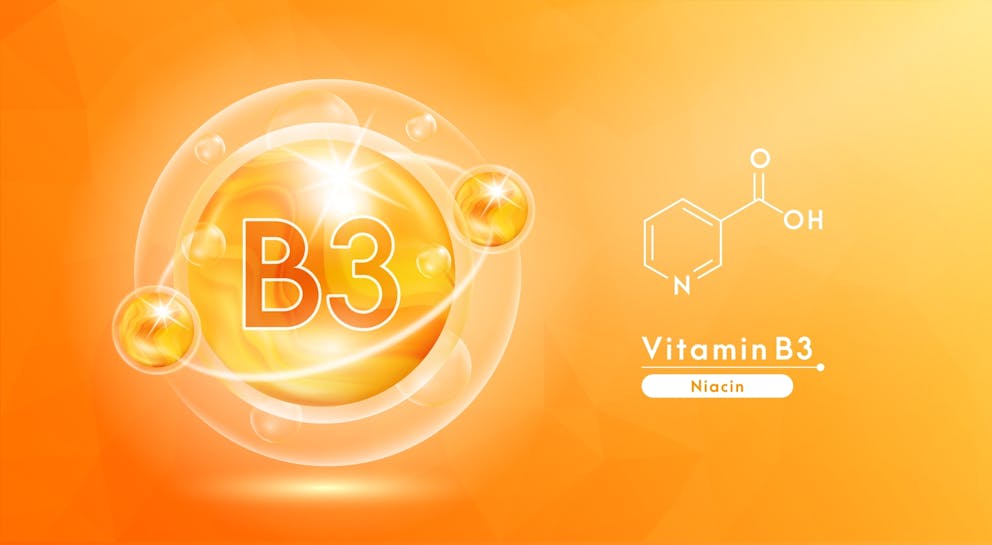
3. Vitamin B3
Vitamin B3, or niacin, facilitates the breakdown of stored body fats, allowing the liver to convert fatty acids into energy, which explains why vitamin B3 is an excellent weight loss supplement if combined with a ketogenic diet.
Because of vitamin B3’s role in fat metabolism, it’s especially important for overweight individuals and those with fatty liver disease, as niacin enhances the elimination of fats stored in liver cells.
Vitamin B3 not only promotes weight loss but also supports healthy liver function, linked to better detoxification capacity, hormonal balance, metabolic health, and overall well-being.
4. Vitamin B5
Vitamin B5, also called pantothenic acid, is another B vitamin essential for keto success as it plays a critical role in facilitating the biochemical conversion of fats into energy.
Vitamin B5 is vital for those who experience chronic stress. Pantothenic acid is involved in the production of the adrenal stress hormone cortisol, and persistent cortisol release can quickly deplete vitamin B5.
Maintaining adequate levels of vitamin B5 promotes adrenal health and restful sleep and can help support a balanced stress response.
In addition, due to its role in energy metabolism and stress resilience, vitamin B5 can reduce the risk of keto-flu symptoms such as irritability, brain fog, and fatigue.
5. Vitamin A
Vitamin A is an essential fat-soluble vitamin that’s crucial for cellular health, vision, immune functions, and DNA synthesis.
Vitamin A is especially important for those following keto to manage or reverse diabetes due to its ability to lower the risk of insulin resistance, the leading cause of type 2 diabetes.
A study published in Diabetes Management investigated the benefits of vitamin A for diabetes and concluded, “The metabolic modulating properties of vitamin A suggest that vitamin A deficiency is a possible independent risk factor for diabetes.”
It’s believed that vitamin A helps regulate balanced insulin production, which promotes steady blood sugar levels linked to better metabolic health and a lower risk of weight gain.
Taking fat-soluble vitamins such as vitamins A or D in combination with medium-chain triglyceride (MCT) oil, another popular keto supplement, can enhance their intestinal absorption and boost their bioavailability.
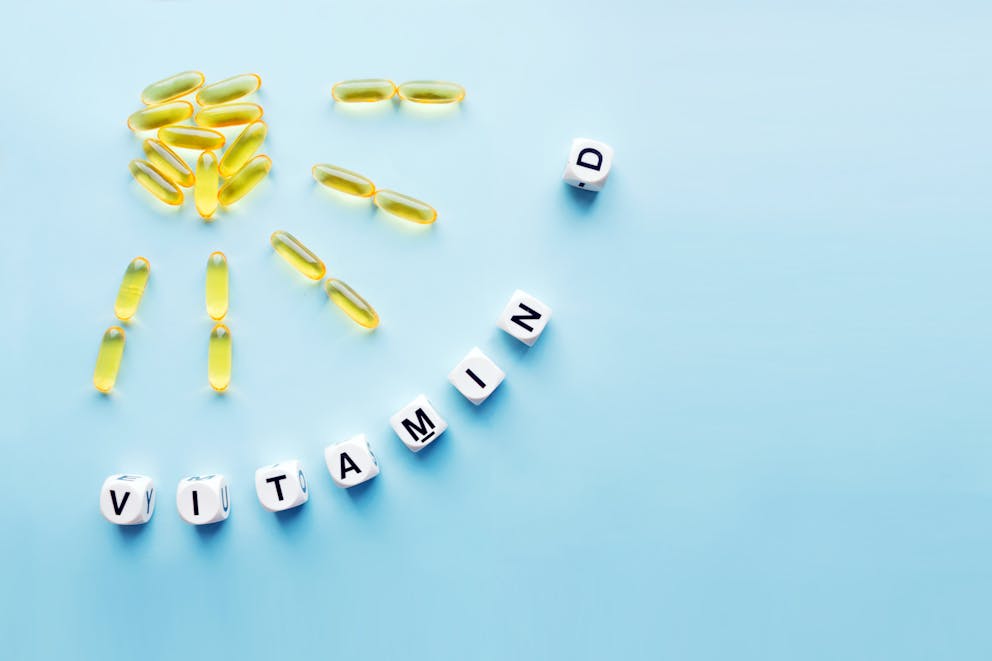
6. Vitamin D
Vitamin D is an essential fat-soluble vitamin that plays a crucial role in regulating various physiological functions, and research published in Cell Reports suggests that vitamin D may help extend longevity.
Unfortunately, more than 40 percent of U.S. adults are vitamin D deficient, leaving many at risk of depression, weight gain, metabolic syndrome, and chronic inflammatory conditions such as Crohn’s disease, rheumatoid arthritis, and lupus.
Taking vitamin D supplements or cod liver oil, which is a rich source of vitamins A and D, is an easy and convenient way to prevent vitamin D deficiency and promote optimal body stores.
However, it’s crucial to choose a vitamin D supplement containing vitamin D3, a more potent form than synthetic vitamin D2 often found in cheap dietary supplements and fortified foods.
Another important consideration is always to combine vitamin D3 with vitamin K2.
While vitamin D increases intestinal calcium absorption and raises blood calcium levels, vitamin K2 redirects calcium into bone tissue, which promotes skeletal health and lowers the risk of soft tissue and arterial calcification.
The best ratio of vitamin D3 and K2 is 1000:10, which means you should take 10 mcg of vitamin K2 per 1000 IU of vitamin D3.
7. Magnesium
Magnesium is an essential mineral that promotes stable blood sugar levels and helps avoid insulin spikes, which can kick you out of ketosis and block fat-burning.
Although there are many keto-friendly magnesium-rich foods, magnesium deficiency is
widespread, and taking a magnesium supplement is an excellent strategy to promote healthy levels.
Magnesium is also effective in reducing common symptoms of the keto-flu, such as muscle cramps, difficulty falling asleep, and headaches.
Magnesium has muscle-relaxing properties, and taking magnesium glycinate, one of the best types of magnesium before going to bed, can promote restful sleep and may help manage insomnia and other sleep-related issues.

8. Choline
Choline supports liver health and helps regulate fat metabolism, and a study published in Nutrients highlights that choline deficiency can significantly increase the risk of fatty liver disease.
Choline is converted into phosphatidylcholine, a compound that regulates the metabolism of fatty acids, which is needed to utilize stored body fat for energy production.
In addition, phosphatidylcholine is a component of bile acid required to emulsify dietary fats and facilitate their digestion and absorption, making choline a crucial supplement for those on a high-fat diet.
9. Nutritional yeast
Switching to a ketogenic diet triggers various metabolic changes that can cause a temporary dip in B vitamin levels, which can lead to common keto flu symptoms such as body aches, low energy, and sugar cravings.
Nutritional yeast is an excellent natural source of B vitamins and trace minerals, including zinc, selenium, magnesium, and iron, and an excellent supplement to support optimal energy levels and metabolic function, particularly during ketosis.

10. Electrolyte powder
The ketogenic diet keeps insulin levels low, which stimulates increased urination and electrolyte loss, especially during the early phases of adapting to a low-carb diet.
Electrolytes are crucial for muscle function and nerve signal transmission and regulate the body’s fluid balance.
Imbalanced electrolyte levels during keto-adaptation are the leading cause of keto-flu symptoms, which can easily be managed by taking a sugar-free electrolyte supplement.
Potassium is the most important electrolyte needed for blood pressure regulation, maintaining the body’s acid-base balance, and regulating the heartbeat.
Unfortunately, many people don’t obtain the recommended 4,700 milligrams of potassium per day, and it’s recommended to opt for electrolyte supplements that contain at least 1,000 milligrams of potassium per serving.
11. MCT oil
Medium-chain triglycerides (MCTs) are fatty acids that are readily absorbed and directly converted into ketones, which can help trigger and maintain ketosis if combined with a ketogenic diet.
Evidence published in the European Journal of Clinical Nutrition found that MCTs have appetite-suppressing properties, making MCT oil an effective option for weight management.
In addition, MCTs are easily digested and provide an excellent energy source for individuals with poor digestive functions and those with gastrointestinal conditions such as Crohn’s disease and inflammatory bowel disease (IBD).

Key takeaways
The body’s nutrient stores can be depleted by many factors, including chronic stress, digestive issues, and certain prescription medications, and nutrient deficiencies can develop despite consuming a nutritious low-carb diet.
Supplementing specific vitamins, minerals, and fatty acids not only promotes overall health and well-being but can also enhance the body’s ability to burn fat and reduce the risk of keto-flu symptoms.
Some of the best keto supplements include B vitamins, vitamins A and D, choline, magnesium, high-potassium electrolyte powders, and MCT oil.
FAQ
1. What are the best keto supplements?
The best keto supplements are B vitamins, vitamins A and D, magnesium, choline, high-potassium electrolyte powders, and MCT oil.
2. What supplements do I need to start keto?
Adapting to keto can temporarily deplete B vitamins and essential electrolytes, and taking nutritional yeast, a natural source of B vitamins, and a potassium-containing electrolyte supplement is an excellent strategy to support keto-adaptation and reduce the risk of keto-flu.
In addition, choline supplements and medium chain triglyceride (MCT) oil can enhance the body’s ability to burn fat and help raise ketone levels, making them a great choice when starting a low-carb diet.
3. Can supplements speed up keto-adaptation?
Yes, several nutrients can help speed up keto-adaptation, and supplementing with B vitamins, trace minerals, electrolytes, MCTs, choline, and magnesium can help the body adjust to the profound metabolic changes associated with ketosis.
4. What is the best supplement for keto flu?
Replenishing electrolytes with a potassium-rich electrolyte powder and supplementing B vitamins by taking nutritional yeast supports the body’s fluid balance and promotes energy production, which helps manage and prevent keto-flu.
5. Is there a supplement that puts you into ketosis?
There is no supplement that can put the body into ketosis, as this requires limiting carbohydrate intake while obtaining the majority of calories from fats.
However, MCTs are rapidly absorbed and converted into ketones, which can raise blood ketone levels and may help trigger and maintain ketosis.
6. What is the best supplement to support weight loss on keto?
Choline and vitamin B3 help facilitate the metabolism of fatty acids, enabling the liver to convert stored body fat into energy, and taking choline and vitamin B3 supplements is an excellent way to boost weight loss on keto.
7. Can any supplements kick you out of ketosis?
Yes, certain supplements, particularly those containing carbohydrates or hidden sugars, can raise blood sugar and insulin levels and kick you out of ketosis.
In addition, excessive protein powder intake can interfere with ketosis by stimulating gluconeogenesis, a metabolic process by which the body converts protein into blood sugar.
Sources
Previous blog
How to Get Rid of Belly Fat Fast With Keto
Popular
08/21/2024
55K views
02/23/2025
46.3K views
11/18/2024
277.5K views
03/18/2024
11/21/2022




